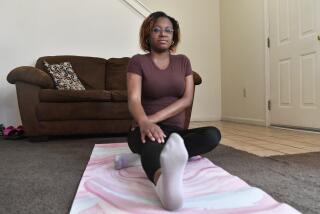Will Stem Cell Research Help or Harm the Disabled?
- Share via
As a woman with cerebral palsy, I agree that the potential for stem cell research is vast. It is precisely this potential that concerns me.
The unfortunate assumption underlying stem cell research is that disease and disability are aberrations rather than natural phenomena. In debates, people often refer to stem cell research as a way to give people’s lives back to them. Although no one particularly likes the presence of disability and disease in their own life, I and the other disabled people I know certainly do not feel that we lack quality of life.
Some, like Christopher Reeve, who support stem cell research, purport to speak for the entire disability community. But they only represent themselves and their own desires for a “cure.” Adjusting to his post-injury status, Reeve appears to support anything that he feels will make him “normal” again, without regard for larger issues. Since his accident, he has dismissed those of us who accept our disabilities and oppose stem cell research as having given up hope. With this condescending attitude, it is not surprising that Reeve is not well received by the disability community.
Proponents of stem cell research would create a “perfect” world in which there is no disease or disability. But what sort of chilling utopia would be founded on the casual creation and destruction of human embryos? With such disregard for human life at its core, would this be a kind and tolerant world or one filled with prejudice, narrow-mindedness and real danger to those of us who are different?
How many would be killed in the womb or worse for cerebral palsy or other “imperfections” that cannot be easily or conveniently “cured” by the new technology? If perfection is our only goal, regardless of human cost, then why not simply eradicate all lives that the majority does not think are worth living?
The relentless desire to eradicate disability is a sad illustration of society’s pathological fear of difference, desire for uniformity, and uneasiness with our human condition. No one individual or group is in a position to judge the quality of others’ lives based on their own narrow experience. Neither scientist, physician nor even a parent should have the awesome power to decide which physical characteristics make an individual’s life worth living.
Granting federal funding for stem cell research sends the wrong message to disabled people and to the community. It tells us and others that we are flawed individuals who are to be cured or changed and strengthens prejudice against us. It allows people to narrowly define concepts like “normal” and “valuable” in ways that could have unpleasant consequences for people like me.
Unless we rethink this issue and change course, misguided utopian thinking may have potentially disastrous consequences for us all.
*
Laura Minges lives in Monrovia. E-mail: ntrepid@ix.netcom.com.






